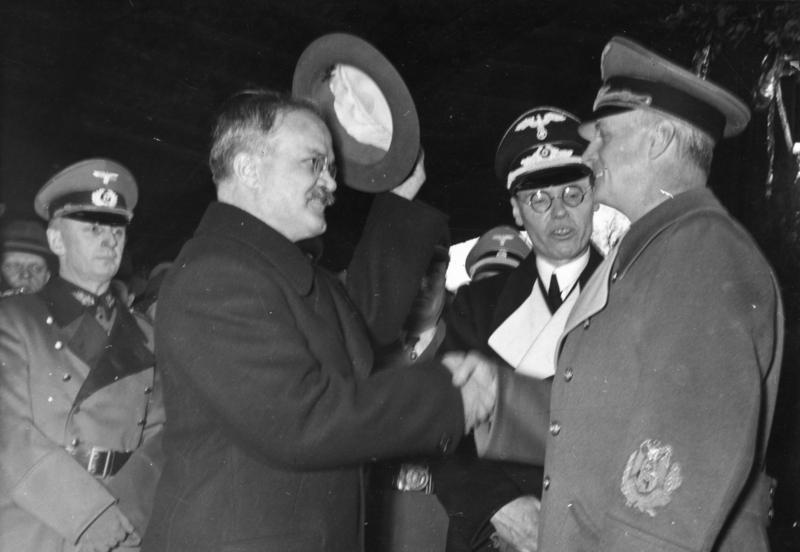Description
German–Soviet Axis talks occurred in October and November 1940, nominally concerning the Soviet Union's potential adherent as a fourth Axis power during World War II among other potential agreements. The negotiations, which occurred during the era of the Molotov–Ribbentrop Pact, included a two-day conference in Berlin between Soviet Foreign Minister Vyacheslav Molotov, Adolf Hitler and German Foreign Minister Joachim von Ribbentrop. While Ribbentrop and most of the German Foreign office wanted an alliance with the Soviet Union, Hitler had been planning to invade the Soviet Union. In early June 1940 as the Battle of France was still ongoing, Hitler reportedly told Lt. General Georg von Sodenstern that the victories against the Allies had “finally freed his hands for his important real task: the showdown with Bolshevism." Ribbentrop nevertheless convinced Hitler to allow diplomatic overtures, with his own hope being for an alliance. Ribbentrop and Benito Mussolini had already speculated at the idea of offering the Soviet Union a free hand in a southern direction. Ribbentrop's approach in general to foreign policy was different from Hitler's: he favored an alliance with the Soviet Union, while Hitler had wanted to pressure Britain into an alliance and pushing for "Lebensraum" in the east.







